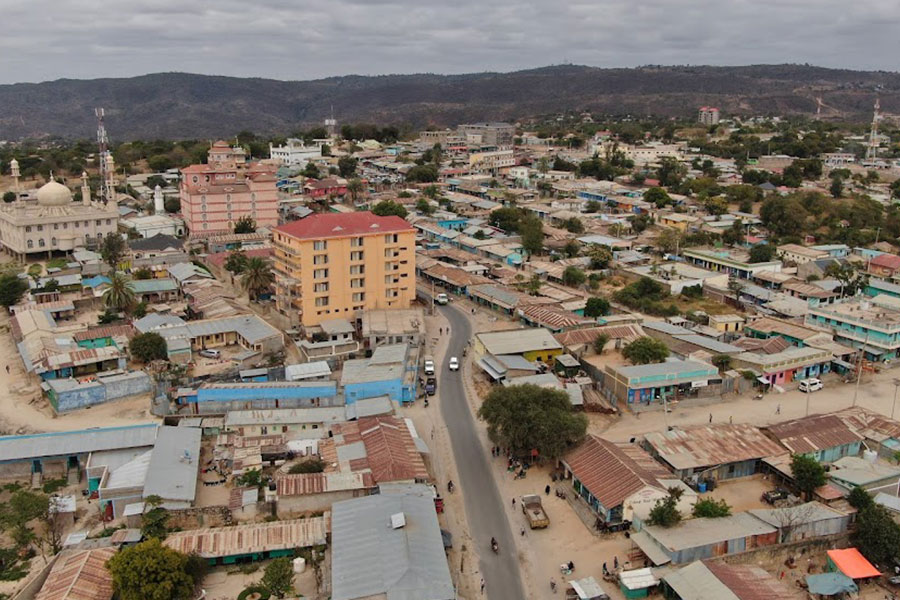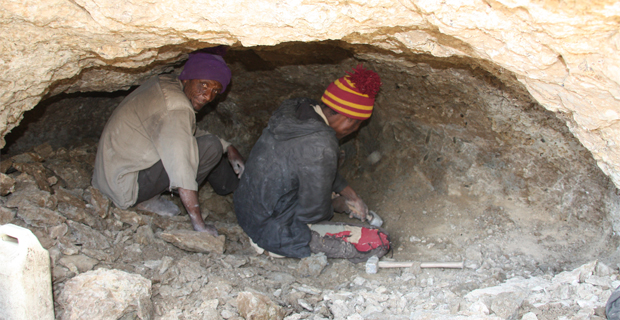
Mar 7 , 2020
By Lea Mehari
For the past two years, there have been reports of a stock market being set up by 2020 in Addis Abeba. The lack of any measures by the government for the past year to move toward introducing such an exchange makes it doubtful that it will happen this year, or any time soon for that matter, but it should not preclude us from discussing what the challenges could be.
One of the major activities that could complicate matters is insider trading. Before tackling this issue, however, we must understand the history and context under which such a stock market can be realised.
With more than 100 million residents and one of Africa's fastest-growing economies, Ethiopia is the world's largest country without a stock exchange. In response, the Prime Minister's Office issued a one-page template indicating the government's desire to establish it as part of the introduction of trade financing instruments in the capital market.
This will not be Ethiopia's first stock exchange. The State Bank of Ethiopia, the former central bank, established the Share Exchange Department within the bank in 1960. This department participated in trading shares, boosting public trust and creating market stability. Following the success of the Exchange Department, an independent organisation, the Share Dealing Group, was founded in 1965. This was active in its dealings but was disbanded in 1974 as a result of the socialist policies of the Dergue.
Considering that Prime Minister Abiy Ahmed’s (PhD) administration is open to the idea of a stock exchange, it is crucial to understand how it should build the trust of both the sellers and the buyers of the shares. It should also have the capacity to ensure the effective and legible dealing of shares.
There are some important requirements that need to be met to have a well-functioning and efficient stock market. Clear requirements and standards for the participation of members in the market for registered companies, professionals, brokers and agents should be laid down. Monitoring and control of all the market activities should be in place. Price and share movement, as well as any information that may affect it, should be made public regularly.
Supporters of stock market establishment argue that by mobilising savings, a well-functioning stock exchange will open up investment opportunities for the public, and have the capacity to raise capital. It will also help in disciplining company management and improve the accountability and transparency of companies as it calls for public ownership.
The establishment of a stock market is believed to minimise the concentration of companies' ownership in the hands of the few and to contribute immensely to the country's economic growth by encouraging investment through allowing traders to buy and sell stocks easily.
The mere formation of a stock market will not provide such benefits immediately. There needs to be a mechanism in place for regulating the stock market and share trading. Such a regulatory framework should be able to protect customers and property rights, enforce contractual rights and obligations properly, and should also be able to enforce corporate governance. The stock market regulation would primarily serve as a bridge over the information asymmetry between the unsophisticated share buyers and the highly educated and experienced sellers.
Insider trading is one of the activities that require a great deal of scrutiny when introducing such a market. It is a term commonly employed for companies that are publicly traded, which we call share companies formed by public subscription in Ethiopia. Insider trading happens when a person buys or sells a company's shares based on information that is not public but is relevant to the value of the stock.
Insider trading is an illegal act, as the trade was carried out on information that has not yet been made public. This is especially relevant to countries with a functioning stock market. Insider trading is made illegal for the purpose of keeping a fair market place. Gaining an unpublished piece of insider information will give a person an unfair advantage over other parties seeking to buy or sell their shares.
One cannot find the issue of insider trading anywhere in Ethiopia's legal code. This could be attributable to the fact that Ethiopia does not have a stock exchange and that the issue of insider trading is mostly discussed in countries that have stock exchanges. Even in Ethiopia's criminal code, there is only one provision that can be used to hinder and create liability for insider trading, and even that can be interpreted as a general provision governing crimes committed in a stock market. It may not specifically apply to insider trading.
With a large number of companies being founded by public subscription in Ethiopia these days, more comprehensive laws are needed to ensure proper corporate governance, especially in the cases of insider trading. In the absence of such laws, shareholders could be exploited.
If the Ethiopian stock market is established without proper laws and a regulatory framework, smart and elite stockbrokers could benefit from a lack of public awareness and harm shareholders.
Without having the regulatory framework in place before an exchange is established, we would bring the collapse of the stock market and start a financial crisis before reaping the benefits.
PUBLISHED ON
Mar 07,2020 [ VOL
20 , NO
1036]



In-Picture | Apr 27,2025

Fortune News | May 07,2022

Commentaries | Dec 25,2018

Verbatim | Dec 14,2024

Viewpoints | Nov 13,2021

Radar | Oct 26,2025

Radar | Apr 01,2024

Fortune News | May 18,2019

My Opinion | Aug 08,2020

Photo Gallery | 180521 Views | May 06,2019

Photo Gallery | 170714 Views | Apr 26,2019

Photo Gallery | 161785 Views | Oct 06,2021

My Opinion | 137289 Views | Aug 14,2021

Dec 22 , 2024 . By TIZITA SHEWAFERAW
Charged with transforming colossal state-owned enterprises into modern and competitiv...

Aug 18 , 2024 . By AKSAH ITALO
Although predictable Yonas Zerihun's job in the ride-hailing service is not immune to...

Jul 28 , 2024 . By TIZITA SHEWAFERAW
Unhabitual, perhaps too many, Samuel Gebreyohannes, 38, used to occasionally enjoy a couple of beers at breakfast. However, he recently swit...

Jul 13 , 2024 . By AKSAH ITALO
Investors who rely on tractors, trucks, and field vehicles for commuting, transporting commodities, and f...

Nov 1 , 2025
The National Bank of Ethiopia (NBE) issued a statement two weeks ago that appeared to...

Oct 25 , 2025
The regulatory machinery is on overdrive. In only two years, no fewer than 35 new pro...

Oct 18 , 2025
The political establishment, notably the ruling party and its top brass, has become p...

Oct 11 , 2025
Ladislas Farago, a roving Associated Press (AP) correspondent, arrived in Ethiopia in...

Nov 2 , 2025
The National Bank of Ethiopia (NBE) has scrapped the credit-growth ceiling that had s...

Nov 2 , 2025 . By SURAFEL MULUGETA
The burgeoning data mining industry is struggling with mounting concerns following th...

Nov 2 , 2025 . By YITBAREK GETACHEW
Berhan Bank has chosen a different route in its pursuit of a new headquarters, opting for a transitional building instea...

Nov 2 , 2025 . By BEZAWIT HULUAGER
Nib International Bank S.C. has found itself at the epicentre of a severe governance...